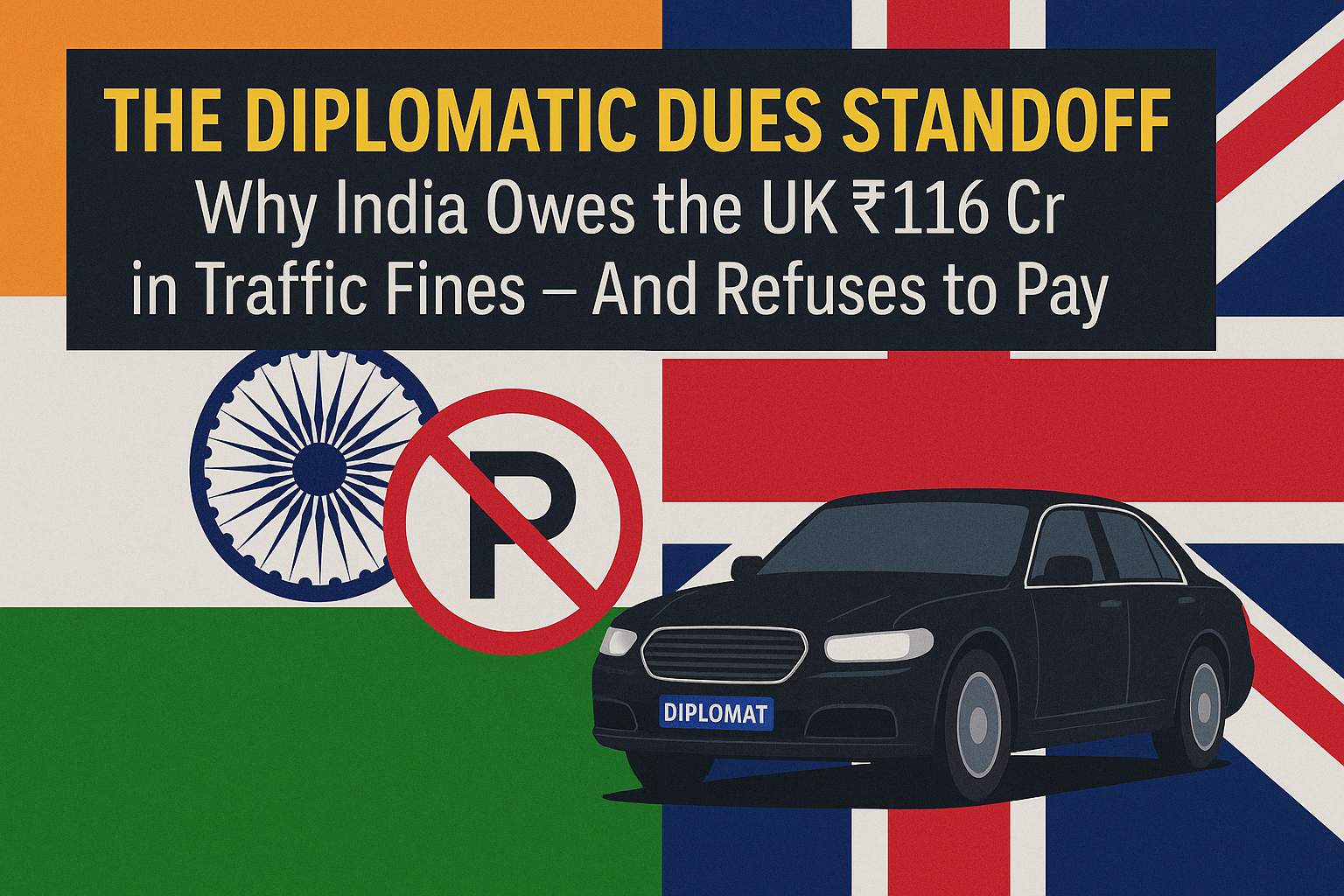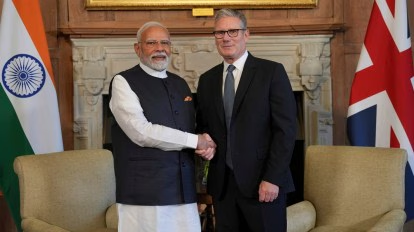India’s diplomatic vehicles in London have accumulated over ₹116 crore in unpaid congestion charges, parking fines, and property dues. While the UK calls it a "service fee," India claims immunity under the Vienna Convention. RagaDecode unpacks the legal clash, global context, and colonial irony.
WHO: The Key Players in the Diplomatic Dispute
- India's High Commission in London: At the center of the controversy, accused of ignoring repeated communications from UK authorities.
- UK Government & Transport for London (TfL): Demanding payment of dues, categorizing the congestion charge as a service fee, not a tax.
- Other Major Debtors: The US, Japan, Nigeria, and China also refuse to pay, backing India’s position.
- Vienna Convention Stakeholders: All signatories to the 1961 Vienna Convention on Diplomatic Relations, which governs tax exemptions for diplomats.
WHAT: The Charges and Figures at Stake
- Congestion Charge: £15 (~₹1,700) per day per vehicle in London’s city center.
- India’s Unpaid Dues (as of Nov 2024):
- ₹116 crore (approx. £10 million) in congestion and penalty charges.
- ₹11.5 lakh in national non-domestic rates (a form of commercial property tax).
- ₹16 lakh in unpaid parking fines.
- Global Diplomatic Dues:
- US tops the list with £14.6 million owed.
- Japan: £10 million
- India: £8.55 million
- Nigeria & China follow closely.
- Some countries owe almost nothing Togo: £40, Finland, Dominica, Monaco: £120–130.
WHEN: Timeline of the Diplomatic Dues Battle
- 1961: Vienna Convention grants diplomats tax exemption.
- 2003: London’s congestion charge introduced.
- August & November 2024: TfL sends letters to Indian High Commissioner Vikram Doraiswami, reiterating that charges are service-based.
- July 24, 2025: India and UK sign a major trade deal FTA not impacted by dues controversy.
- August 2025: UK Parliament raises the issue again as unpaid charges cross £143.5 million globally.
WHERE: Geographic and Geopolitical Impact
- London: The primary location of unpaid dues.
- India–UK Bilateral Relations: Despite the tension, ties remain stable, and trade negotiations continue.
- Global Context: The issue isn’t limited to India it's part of a broader diplomatic divide on interpreting international conventions.
WHY: The Root Cause Behind the Refusal to Pay
- India’s Stand:
- Argues the charge is effectively a local tax, not a fee.
- Invokes Article 34 of the Vienna Convention, which exempts diplomats from "all dues and taxes."
- UK’s Argument:
- Claims the congestion charge is a service fee not covered under the Convention’s exemptions.
- Points to non-response from embassies, especially India’s.
“There is no legal exemption for diplomatic missions,” TfL Chief Strategy Officer, Alex Williams (Letter to India’s High Commissioner)
HOW: Legal, Diplomatic & Ethical Interpretations
- Legal Grey Zone:
Vienna Convention doesn’t clearly define if service charges like congestion fees qualify as taxes. - Diplomatic Norms:
Most embassies worldwide follow their own interpretation leading to global inconsistency. - Colonial Irony:
- The UK demands millions in dues from former colonies like India.
- Meanwhile, it refuses to return colonial-era artifacts like the Kohinoor, temple idols, and manuscripts.
“The British Museum's glass cases remain locked much like the larger conversation on colonial accountability.”
Visual Summary (Optional Add-on for Web)
| Country | Dues Owed (Approx. £) | Equivalent in ₹ Cr |
|---|---|---|
| USA | 14.6 million | ₹170+ Cr |
| Japan | 10 million | ₹116 Cr |
| India | 8.55 million | ₹99 Cr |
| Nigeria | 8.4 million | ₹97 Cr |
| China | 7.9 million | ₹91 Cr |
Sources & Further Reading
United Kingdom



